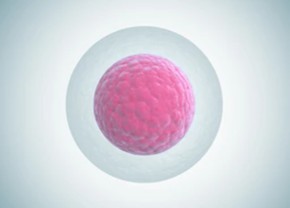How to Scale Up Single-Cell Clones?
In the rapidly evolving field of biopharmaceutical production, scaling up single-cell clones has become a pivotal process. This technique is fundamental for the production of therapeutic proteins, vaccines, and other biologics.

What Is Single-Cell Cloning?
Single-cell cloning is the process of isolating a single cell from a heterogeneous population and expanding it into a genetically identical clone. This technique is essential for the generation of stable and well-characterized cell lines, as it ensures the purity and consistency of the cellular material. By starting with a single cell, researchers can eliminate the variability and heterogeneity often seen in traditionally derived cell lines, which can significantly impact downstream applications. There are some common techniques employed in single-cell cloning.
- Manual methods. Traditional methods such as limiting dilution and micromanipulation are still in use due to their simplicity and cost-effectiveness.
- Automated methods. Modern techniques like FACS and microfluidic devices offer higher precision and efficiency, making them preferable for large-scale applications.
Approaches for Scaling Up Single-Cell Clones
Subcloning and expansion strategies involve isolating individual cells from the clonal population and further propagating them to generate multiple subclones, each originating from a single cell to study variations and ensure clonal stability. Moving single clones from multi-well plates to fed-batch cultures in flasks and bioreactors is a crucial step in biopharmaceutical production. A single clone is selected based on desired characteristics and transferred to a larger vessel for expansion.
Sequential scaling
Sequential scaling, also known as stepwise scaling, is a methodical approach to gradually increase culture volumes from small to large scales. This strategy helps cells adapt to changing environmental conditions and reduces the risk of culture failure. This method starts with a small-volume culture in a flask or small bioreactor. Then, the cells to progressively larger vessels, such as spinner flasks or intermediate-scale bioreactors. At last, moving the cells to large-scale bioreactors (up to several thousand liters). Sequential scaling is widely used in the production of monoclonal antibodies and therapeutic proteins where gradual adaptation is crucial.
Fed-batch and continuous cultures
Fed-batch and continuous cultures are techniques designed to maintain cell growth and productivity by continuously or intermittently supplying nutrients and managing waste products. In fed-batch culture, nutrients are added to the culture at intervals without removing the culture medium. This method supports high cell density and productivity. Compared to simple batch cultures, this method supports higher cell densities.
Continuous culture
In continuous culture, fresh medium is continuously added while culture fluid containing cells and products is simultaneously removed. This maintains a steady state of cell growth and product formation. This method maintains a continuous state of cell growth and product formation, providing consistent product quality over extended periods. It is suitable for the production of vaccines, enzymes, and other biologics requiring consistent production rates.
Strategies for Scaling Up Single-Cell Clones
Optimizing cell culture conditions
The foundation of successful single-cell clone expansion lies in the optimization of cell culture conditions. Researchers meticulously evaluate and fine-tune factors such as media composition, cell seeding density, and incubation parameters to create the optimal environment for rapid and consistent cell growth. By closely monitoring and adjusting these variables, we can ensure the maintenance of cellular health, genetic stability, and desired phenotypic characteristics throughout the scale-up process.
Implementing automated and high-throughput approaches
To further enhance the efficiency and reliability of our single-cell clone scale-up efforts, automation and high-throughput technologies are integrated into workflows. This includes the use of microfluidic devices for single-cell isolation, robotic liquid handling platforms for parallel clone expansion, and integrated monitoring and control systems to ensure consistent quality and reproducibility.
Ensuring genetic and phenotypic stability
Throughout the scale-up process, a strong emphasis is placed on maintaining the genetic and phenotypic integrity of our single-cell clones. The comprehensive quality control measures, including karyotyping, genomic analysis, and detailed phenotypic characterization, allow to monitor and validate the fidelity of the clones at each step, ensuring that the final cell lines meet the stringent requirements for biopharmaceutical and therapeutic applications.
Applications of Scaled-up Single-Cell Clones in Biopharmaceutical Production
The ability to reliably scale up single-cell clones has opened up a world of possibilities in the biopharmaceutical industry. These genetically homogeneous and well-characterized cell lines are invaluable for a wide range of applications, including:
- Recombinant protein production. Single-cell clones engineered to express high levels of target proteins are the backbone of many biopharmaceutical manufacturing processes. By scaling up these clones, a consistent and reliable source of recombinant proteins can be used for the development and production of therapeutic drugs and biologics.
- Gene therapy. Single-cell clones are also crucial in the production of viral vectors for gene therapy. These vectors are used to deliver therapeutic genes to patients, offering potential cures for genetic disorders.
- Vaccines. The production of vaccines, particularly viral vaccines, relies heavily on the use of single-cell clones. Scaled-up clones provide a consistent and high-yield source of viral antigens, essential for effective vaccine production.
Creative Bioarray Relevant Recommendations
| Product/Service Types | Description |
| Clonality Analysis Service (FISH) | Creative Bioarray provides the genetic characterization of producer cell lines by FISH, which offers information on transgene integrity and integration sites. |
| Karyotyping (G-Banded) Service | Creative Bioarray has performed many karyotyping (banded chromosome analysis) services for cell line authentication and some specific research. In providing karyotyping information, we can promote the advancement of biology projects. |
| Stable Cell Line Genetic Stability Testing | Creative Bioarray offers cell line characterization services to companies and research institutes in the areas of pharmaceuticals, tissue engineering, antibody or vaccine production. |

